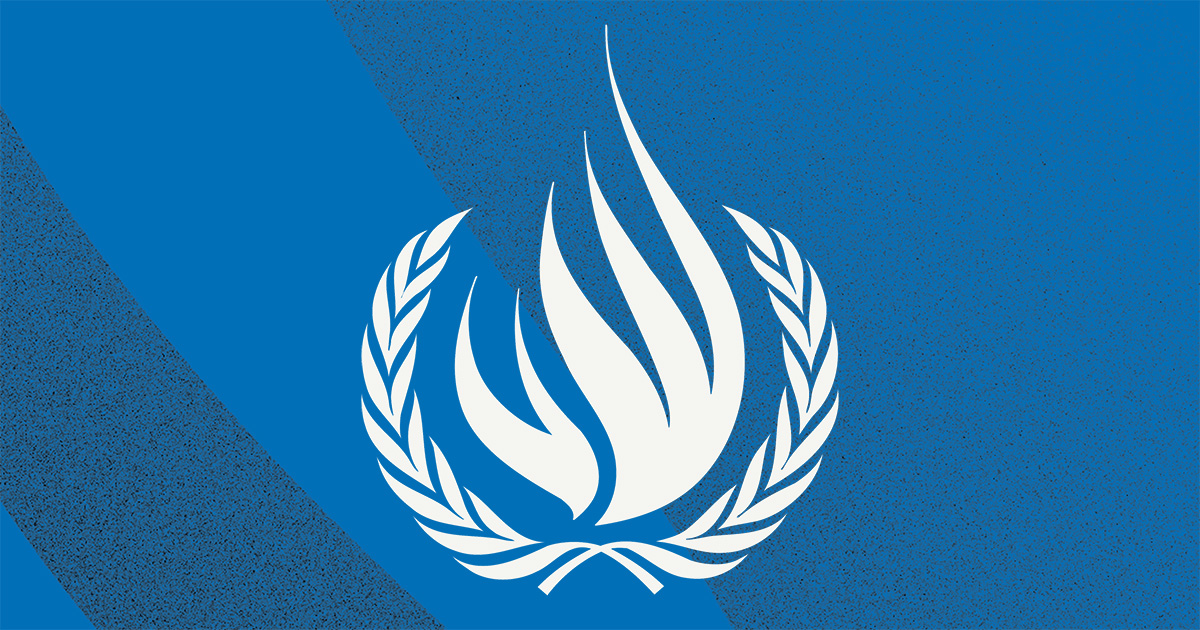
Delivered by
Volker Türk, UN High Commissioner for Human Rights
At
New York - Summit of the Future
Distinguished participants,
Colleagues,
It is impossible to look at the state of the world today and not question, deeply, how we got here: conflicts, escalating in ways that are terrifying; deepening inequalities, with almost obscene levels of wealth concentrated in the hands of a few; the relentless destruction of our planet.
This is both the handiwork and lifeblood of oppressive systems.
In every region, I am alarmed by the continued stranglehold of deep-seated power dynamics or increasingly blatant attempts to grab or hold on to power.
It begs the question – how can we build a more peaceful tomorrow, when today is so violent and so full of turmoil?
So, our discussion today is crucial.
The oppressive, outdated patriarchal system that has long sought to subjugate one half of humanity is at the heart of so many of the challenges that we continue to face – as individuals, at the family and local level, and as the international community. The power to suppress and to silence, to wage war and wreak havoc – all too often wielded by angry, egotistical, short-sighted men. This reality is a vital starting point for any discussion on how to build a more peaceful future.
A comprehensive analysis of conflict – one that centres the experience of women and girls – holds vital lessons for better understanding and thus seeking to counter patriarchy.
What happens to women and girls before and during the outbreak of conflict? Once conflict begins, how do women and girls work to keep families and communities safe and functional? Who attempts to undermine their efforts to do so, and how? These are key questions. And yet, women’s stories are rarely heard and rarely listened to, except later, as victims, or numbers.
Invariably, patriarchal power structures are still standing after a conflict ends – even when everything around them has been destroyed. The needs of female heads of households in conflict-affected communities are rarely met by effective, tailored reconstruction and rehabilitation programs – thereby contributing to the feminization of poverty and perpetuating the gender poverty gap.
Women create peace – in homes and communities everywhere. Their full participation helps to prevent conflict and it makes peacebuilding much more effective. History is full of such inspirational stories.
Leymah Gbowee and Liberia’s women in white were the driving force behind peace talks that ended the country’s civil war.
Women played a crucial role in peace talks in Colombia – negotiating local ceasefires, securing the release of hostages, highlighting the concerns of the war’s victims, and informing reconciliation and accountability mechanisms in the final agreement.
In Northern Ireland, Mo Mowlam’s fearless dedication to peace is well known. The Good Friday Agreement is living proof of what"s possible when women are given a seat at the negotiating table.
Studies show that the participation of women increases the probability of a peace agreement lasting at least two years by 20%, and lasting 15 years by 35%. Yet, on average, women constituted less than 15% of peace negotiators between 1992 and 2019.
It is more than time for women to take their rightful place, with important seats at all the important tables. Before conflict breaks – to explain how inequality plays out, to highlight the triggers of war, to contribute to important political decisions. And again, later, when peace is being negotiated.
Patriarchy of course goes beyond conflict.
Old prejudices are coming back to haunt us all. It alarms me to see growing limitations on the rights of women and girls – often in the most private or intimate spheres.
Decision makers, many of them men, are questioning women’s sexuality and denying them the rights to make choices about their own bodies. Are telling women who to love and what to wear. Are restricting choices of whether and where to work. Are creating platforms for abhorrent misogyny and hatred spewed online. And are designing technological systems that perpetuate male biases and gender discrimination.
Colleagues,
Patriarchal power dynamics, old and new, are blocking meaningful action to tackle gender-based violence. Data from the WHO suggests that 1 in 3 women will experience gender-based violence at least once in their lifetime. One in three. If the same levels of such violence were being levied against men, we would have declared international emergencies several times over.
Systemic, transformational change is needed – and the human rights framework offers us a path to achieve exactly that.
We must listen to and respect the perspectives of women and girls. Including Indigenous women, persons with disabilities, older persons, women from racial, religious or ethnic minorities and LGBTQI+ persons.
We must step up efforts to ensure equal and inclusive representation of women in decision-making. One concrete suggestion is for States to amend their constitutional and legal frameworks to guarantee 50:50 parity between women and men in all spheres of decision-making as a key principle.
We must engage in frank and open dialogue on the possible tensions between interpretations of religion and tradition, on the one hand, and equality and choice on the other.
We must ensure accountability for violations, ranging from gender-based violence to sexism and misogyny.
And we must invest in education based on the universal values that we all share - to give children and young people the ability to deconstruct patriarchal ideologies and dismantle broader power issues, like structural racism.
Distinguished participants,
We cannot stop pushing, advocating, striving, investing until we have achieved equality.
Otherwise, peace will remain short-lived or entirely outside our reach.
I assure you that I, and my Office, stand in solidarity with women everywhere.
Thank you.







